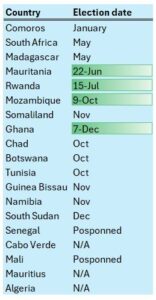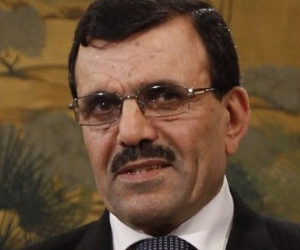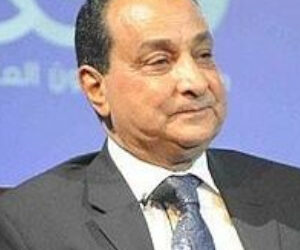The chairman of Egypt's Suez Canal on Thursday affirmed the waterway is "not for sale", in a bid to allay fears over a...
1271 issue: week ending 23 December 2022
Another Wasted Year Ahead
With MondAfrique
The island nation of Comoros on the Indian ocean is the first African nation to inaugurate the election season on the  African continent. And if the Comoros island is an example of what’s to come, Africa’s elections are going to count for nothing, with a few notable exceptions.
African continent. And if the Comoros island is an example of what’s to come, Africa’s elections are going to count for nothing, with a few notable exceptions.
In the Comoros, the incumbent President Azali Assoumani was declared on the 16 January 2024, the winner of rigged elections that triggered riots. As of January 18, Comoros witnessed a second day of turmoil resulting in one fatality and at least six injuries. Opposition parties contested the election results, alleging fraud and bias in favor of Assoumani, who, having changed the constitution in 2018 to bypass term limits, secured a fourth term with 62.97% of the vote. Accusations of dissent crackdown and protest bans were leveled against Assoumani, who also chairs the African Union.
President Assoumani and the Comoros are a template of what African politics looks like. African leaders have no interest in quitting their presidential seats without upheaval. Aside from some exceptions, there is no such thing as smooth presidential transition. Assoumani of the Comores has been in power since 1999.
So 2024 should be a record election year for Africa. Twenty countries, accounting for 346 million voters will be called to participate to elections that will mostly be rigged and decided in advance.
However, for those of you who live un western nations and where elections are the backbone of governance, it is worth noting that Africa has long been looking to distance itself from western-style democracy. Our colleagues from MondAfrique noted, rightly so, the for the most part, the forthcoming African elections have no democratic content and standards in them, citing the fact that different factors and actors have a more direct impact on the political systems in those countries. Among the factors cited by MondAfrique is the predominant role of the military in several countries like Mali, Niger and Guinea, the strength of traditional tribal structures, the rise of Islamic values favoring tradition over the law or finally the positive image of Vladimir Putin among many of African heads of state, factors that naturally clash with Western democratic values.
So of course, Africa does not have to mimic the west. It can create its own political model. But should we be pleased that a handful of ruthless rulers and their backers will win elections in advance? Not at all. Here is a snapshot of what to expect this year as African experience another election cycle.
Tunisia’s UGTT labor union urges action to end political stalemate
A powerful Tunisian trade union called Wednesday for a road map to "save" the country from a slide back to autocracy,...
Algeria troubled by Europe’s gas price cap
This article is free, but it requires registration. Click on article to register or login
Gambia, another West African nation, headed toward turmoil
The Gambia's government on Wednesday said it had thwarted a coup attempt the previous day and arrested four soldiers....
MENA: How to tame hawkish Netanyahu as US fears new right-wing government in Israel could derail Abraham accords
The United States plans a meeting early in 2023 between Israel and Arab nations that recognize it as it pushes the...
Sahel: Worker of Doctors without Borders (MSF) kidnapped in north Mali
A worker with the French-based medical charity Doctors without Borders (MSF) has been kidnapped in jihadist-torn...
Tunisia: Political crisis worsens with arrest of former PM Laarayedh
Tunisian police have arrested former prime minister Ali Laarayedh, his Islamist-inspired Ennahdha party said Tuesday,...
Libya: Mercenaries of Libyan warlord Khalifa Haftar accused of war crimes
Amnesty International accused Monday an eastern Libyan armed group of committing war crimes and serious abuses to...
Libya: Court in Tripoli sentences 17 IS members to death
A Libyan court on Monday sentenced 17 people to death after finding them guilty of joining the Islamic State group and...
Sahel: Germany threatens withdrawal of troops from Mali by 2024
This article is free, but it requires registration. Click on article to register or login
France set to readjust visa issuance policy for Maghreb visitors
This article is free, but it requires registration. Click on article to register or login
Sahel: Burkina Faso-Ghana relations sour over Russian mercenaries
This article is free, but it requires registration. Click on article to register or login
Algeria: Activist Slimane Bouhafs sentenced to prison
This article is free, but it requires registration. Click on article to register or login
Mali: Two UN peacekeepers killed in Timbuktu
This article is free, but it requires registration. Click on article to register or login
Tunisia: President faces turmoil after election turnout fell below 9%
This article is free, but it requires registration. Click on article to register or login
Egypt: Businessman Mohamed al-Amin dies in prison
This article is free, but it requires registration. Click on article to register or login





